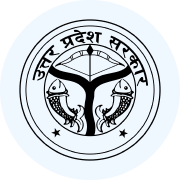Super TET Exam > Super TET Videos > Environment & Social Studies for Super TET > Emergency (Part -2) - Indian Polity
Emergency (Part -2) - Indian Polity Video Lecture | Environment & Social Studies for Super TET
FAQs on Emergency (Part -2) - Indian Polity Video Lecture - Environment & Social Studies for Super TET
| 1. What is the Emergency in Indian Polity? |  |
Ans. The Emergency in Indian Polity refers to a time when the President of India imposes a state of emergency in the country under Article 352 of the Constitution. During this period, the central government gains extraordinary powers and can suspend several fundamental rights of the citizens.
| 2. What are the three types of Emergencies in Indian Polity? |  |
Ans. The three types of Emergencies in Indian Polity are:
1. National Emergency: It is declared when there is a threat to the security of India by war, external aggression, or armed rebellion.
2. State Emergency: It is declared when there is a failure of the constitutional machinery in a state, leading to the breakdown of law and order.
3. Financial Emergency: It is declared when the financial stability or credit of India is threatened.
| 3. What are the provisions under a National Emergency? |  |
Ans. Under a National Emergency, the President can suspend several fundamental rights guaranteed by the Constitution, except those related to life and personal liberty. The central government gains the power to make laws on subjects under the State List, and the Parliament can extend its tenure beyond five years.
| 4. What happens during a State Emergency? |  |
Ans. During a State Emergency, the President can take direct control of the state's administration. The Governor of the state acts on behalf of the President and can assume all executive and legislative powers of the state. The Parliament can make laws on the subjects under the State List, and the President can suspend the state government and appoint an administrator.
| 5. How long can a State Emergency last? |  |
Ans. A State Emergency can initially be imposed for a period of six months. However, it can be extended by six months at a time with the approval of the Parliament. The total duration of the emergency should not exceed three years unless it is extended by a resolution passed by both houses of Parliament.
Related Searches















